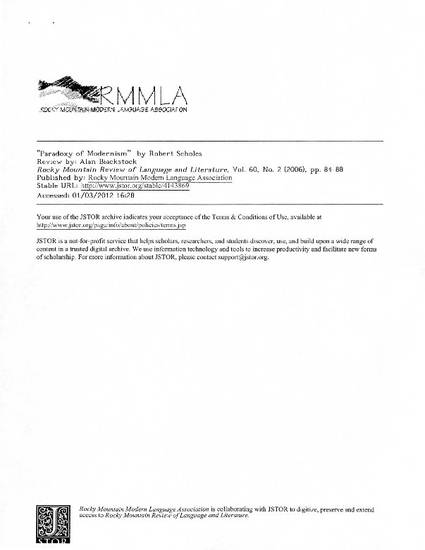
Readers familiar with Scholes' The Rise and Fall o/English should find his latest book equally engaging. Cyril Connolly's characterization of the work of Dornford Yates, quoted with admiration by Scholes in Chapter Six of this book, might apply equally well to Scholes' own work, as it exhibits "a wit that is ageless united to a courtesy that is extinct." What Scholes finds so admirable in the phrase is "not merely its elegant syntax, but the way that the syntax balances against each other and thus emphasizes the words 'ageless' and 'extinct'-suggesting that the admirable quality of Yates' work derives from the oxymoronic or paradoxical combination of something durable with something perishable" (166). In endorsing Connolly's assessment of Yates, Scholes echoes the statement of purpose with which he opens the book: to justify his apparently oxymoronic or paradoxical penchant for writing about such perishable "non-literary" genres as science fiction and crime stories, and to challenge New Critical aestheticism and the New York Museum of Modern Art's doctrine that "modernism is the art that is essentially abstract."

Originally Published by the Rocky Mountain Language Association in Rocky Mountain Language Journal.
This work made publicly available electronically on March 1, 2012.